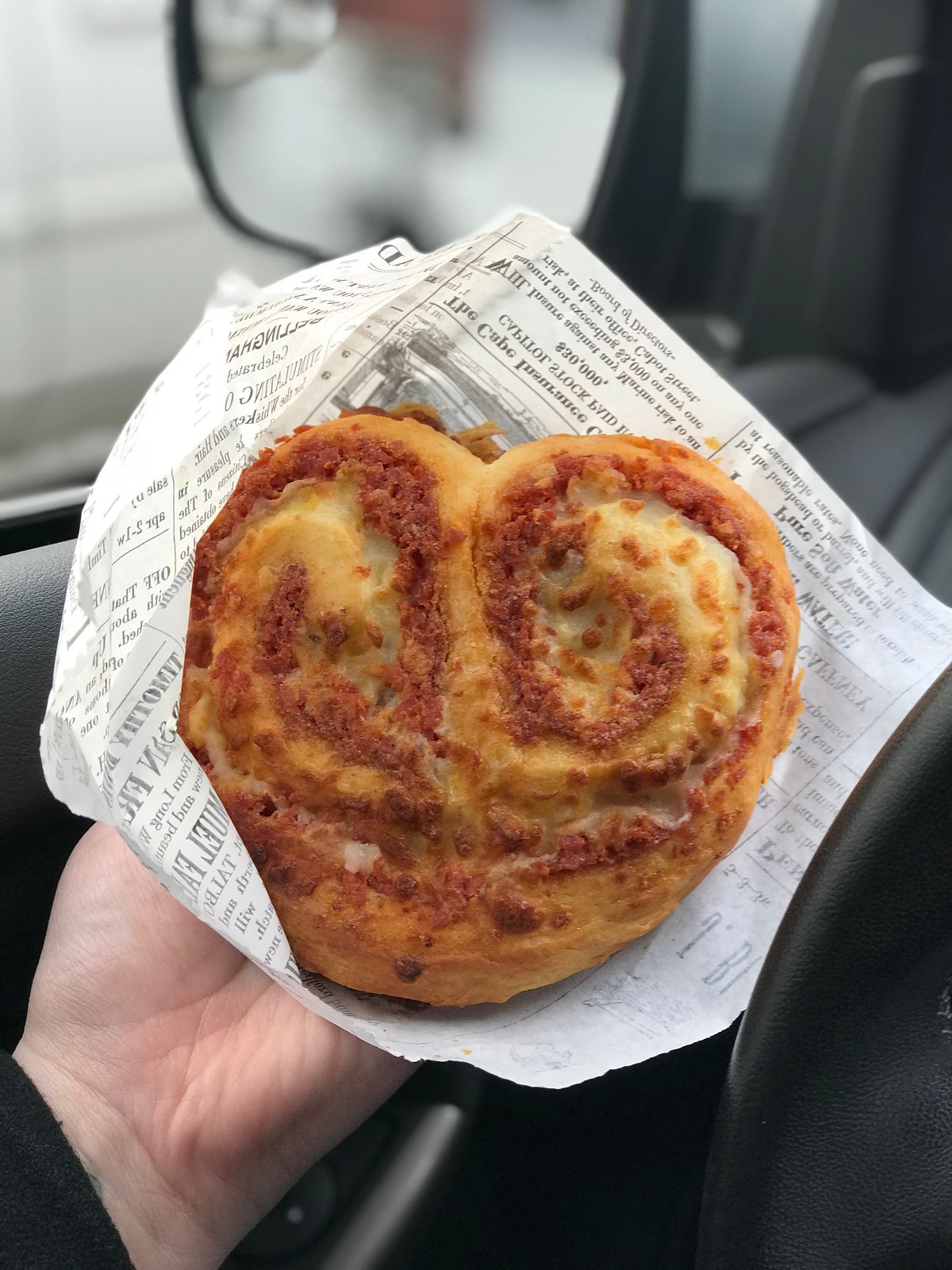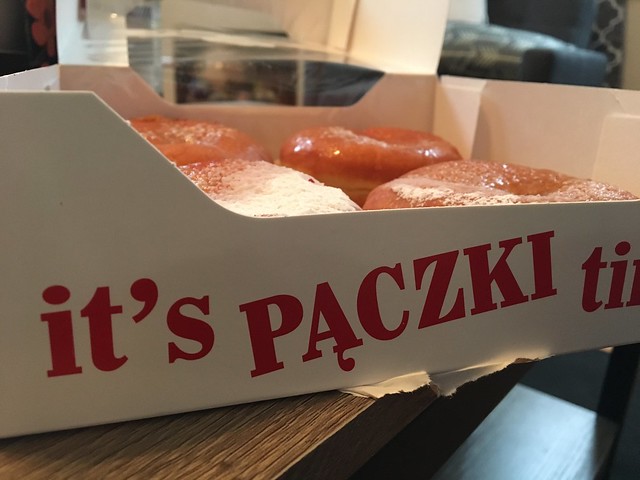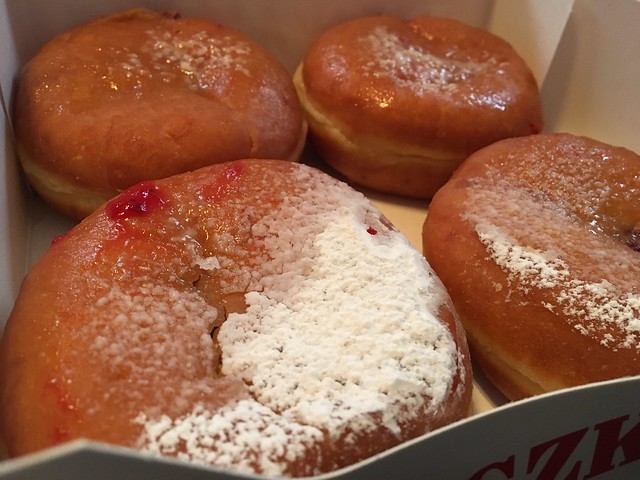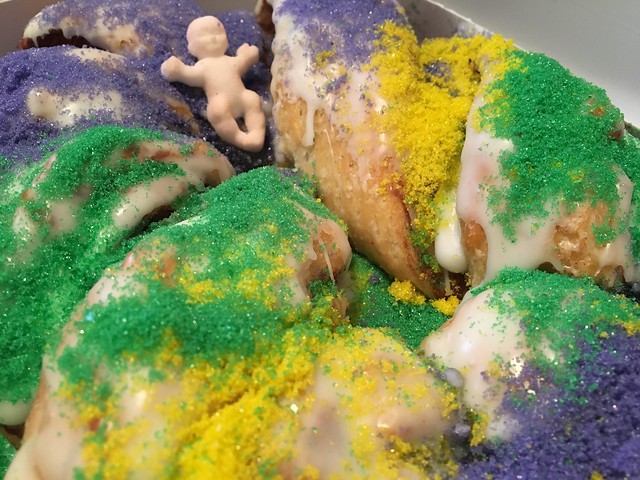
King Cake is "a type of cake associated in a number of countries with the festival of Epiphany at the end of the Christmas season; in other places, it is associated with the pre-Lenten celebrations of Mardi Gras/Carnival." (Wikipedia)
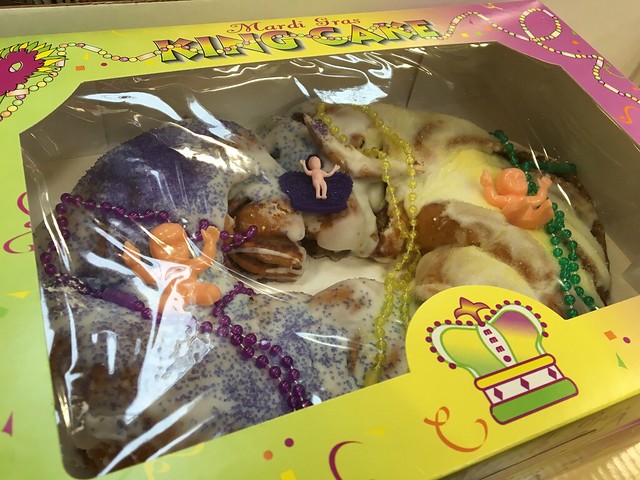 Oddly, I don't think I ever tried King Cake. So, when I saw one at the store, I picked it up.
Oddly, I don't think I ever tried King Cake. So, when I saw one at the store, I picked it up.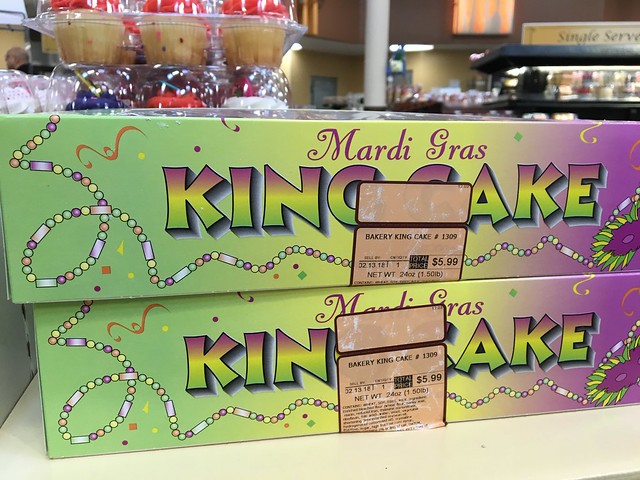
What started out roughly 300 years ago as a dry French bread–type dough with sugar on top and a bean inside now comes in many varieties depending on the country. Some king cakes are made of a sweet brioche dough in the shape of a hollow circle with a glazed topping sprinkled with colored sugar. Hundreds of thousands of King Cakes are eaten in New Orleans during the Carnival season. In other countries, king cakes are made with a puff pastry, filled with one of several fillings (e.g., almond, apple, chocolate/pear, etc.), and have a small figurine hidden inside. The figurine changes from bakery to bakery and often represents a hit movie or other cultural icon. The cake often has a small plastic baby (to represent the Baby Jesus) inside or underneath; and the person who gets the piece of cake with the trinket has various privileges and obligations.[1][2] (Wikipedia)
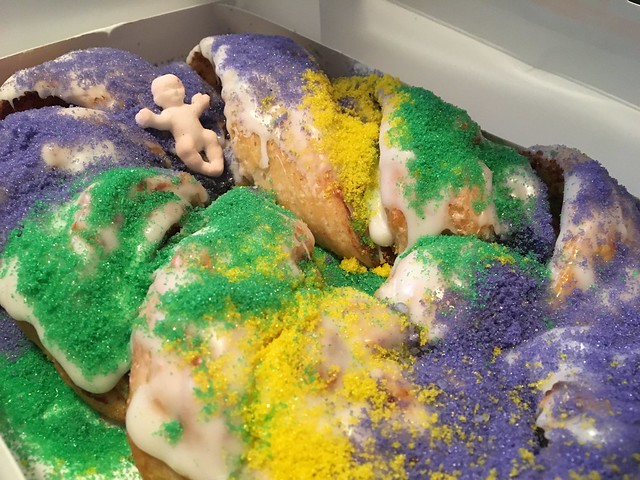
Fortunately, local shops also make a King Cake, like Starlings Coffee & Provisions:
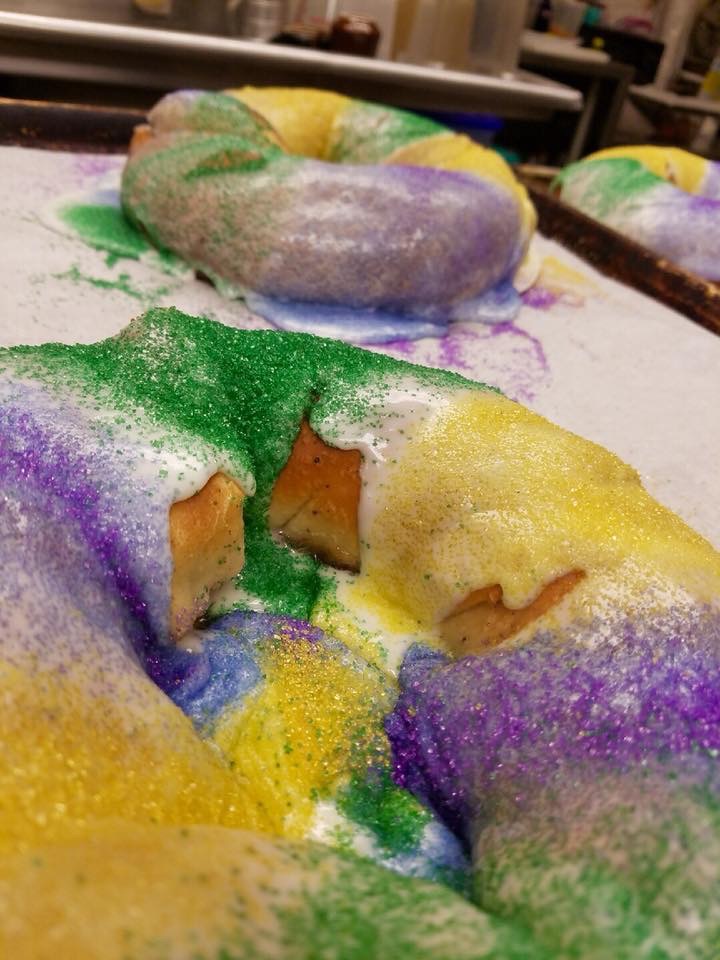
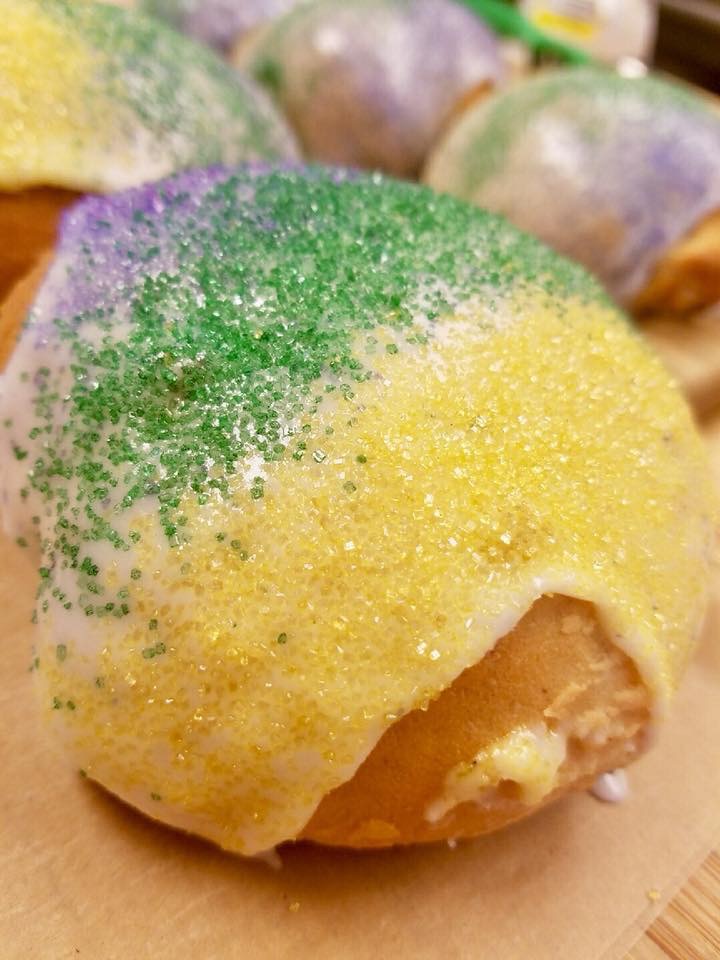
Have you had your King Cake this year?
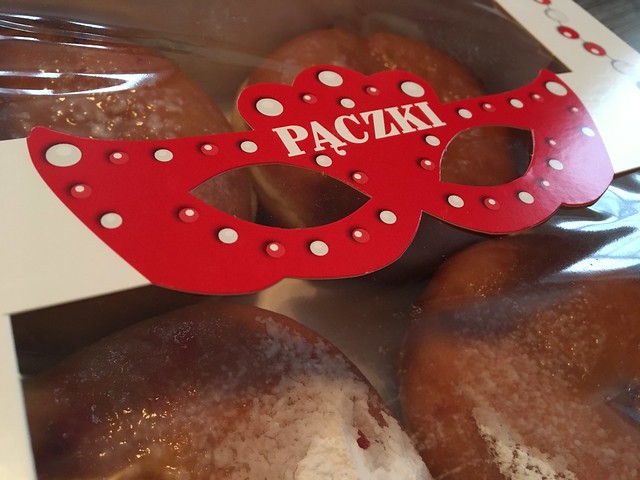 Today is a big day in a number of cultures, and food is often involved.
Today is a big day in a number of cultures, and food is often involved.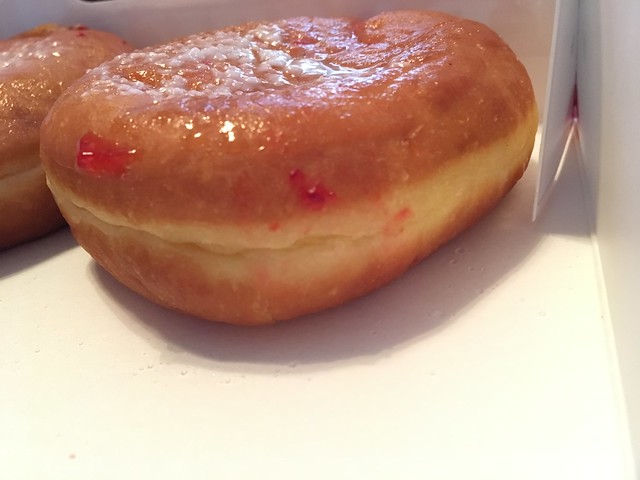 Those will Polish heritage are likely familiar with paczki (pronounced PUNCH-kee), which is like a jelly donut. And that bright stripe around the middle points to a good one.
Those will Polish heritage are likely familiar with paczki (pronounced PUNCH-kee), which is like a jelly donut. And that bright stripe around the middle points to a good one.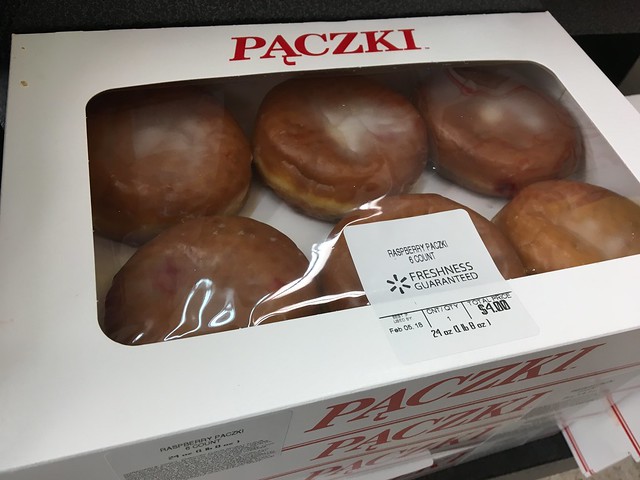
Poland’s version of the jelly doughnut is sold by the dozens in the days leading up to Lent, the 40-day period when Christians fast, pray and do penance in preparation for Easter. They’re especially popular on Fat Tuesday, the day before Ash Wednesday, when tradition calls for stuffing yourself silly with the fat and sugar that the faithful know they’ll soon have to say goodbye to.
Back in the Middle Ages, the doughnuts were filled with pork fat and fried in lard. They got sweeter, and lighter, once King Augustus III brought French chefs to the Royal Court during his reign from 1734 to 1763. Made with a very rich, sweet yeast dough chock-full of sugar, milk, eggs and butter, they’re a bit more fattening than a traditional doughnut (Pittsburgh Post-Gazette)
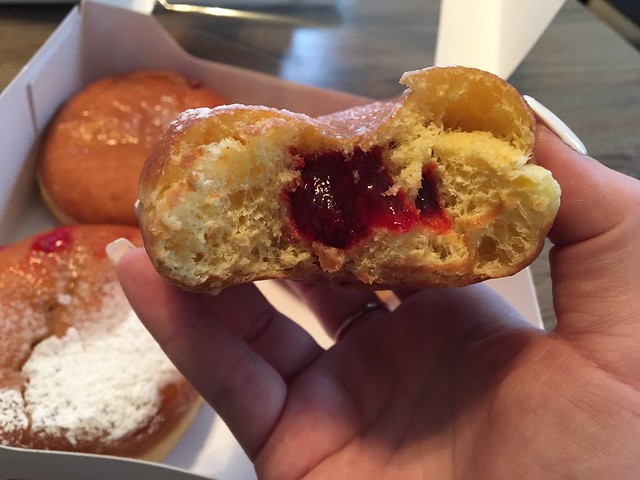 Area bakeries are likely to sell these babies, but I had a hard time finding some locally so I picked up a pack at Kroger. In the Northern Panhandle, Gus's Goodies always had some.
Area bakeries are likely to sell these babies, but I had a hard time finding some locally so I picked up a pack at Kroger. In the Northern Panhandle, Gus's Goodies always had some. In Poland, “paczki day” is observed on Tłusty Czwartek (Fat Thursday), or the last Thursday before Ash Wednesday. Here, it's usually celebrated on Fat Tuesday.
 Maybe I'm just a sucker for limited time releases -- or love -- but I get excited when things suddenly turn heart-shaped: pizzas, biscuits, pepperoni rolls!
Maybe I'm just a sucker for limited time releases -- or love -- but I get excited when things suddenly turn heart-shaped: pizzas, biscuits, pepperoni rolls! My coworkers and I indulged in a heart-shaped pizza in honor of the season.
My coworkers and I indulged in a heart-shaped pizza in honor of the season.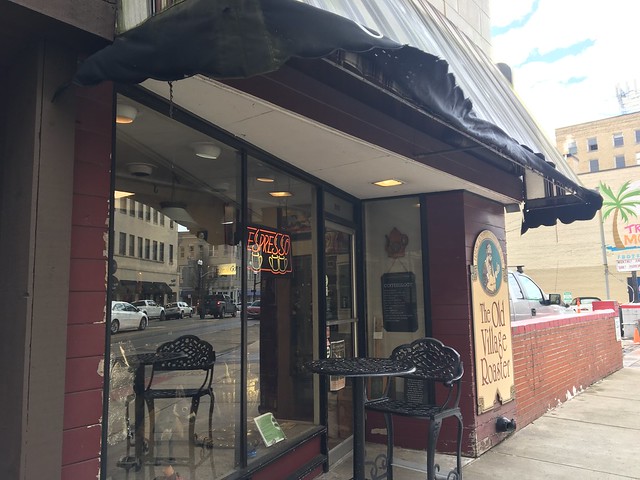
The Old Village Roaster is a little coffee shop that roasts their own beans! So cool.
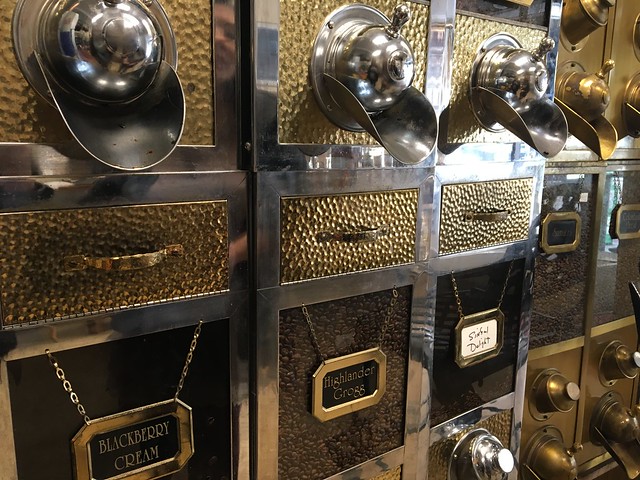
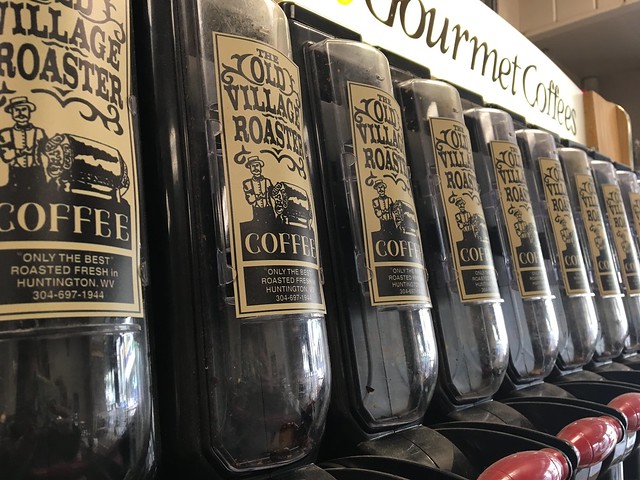
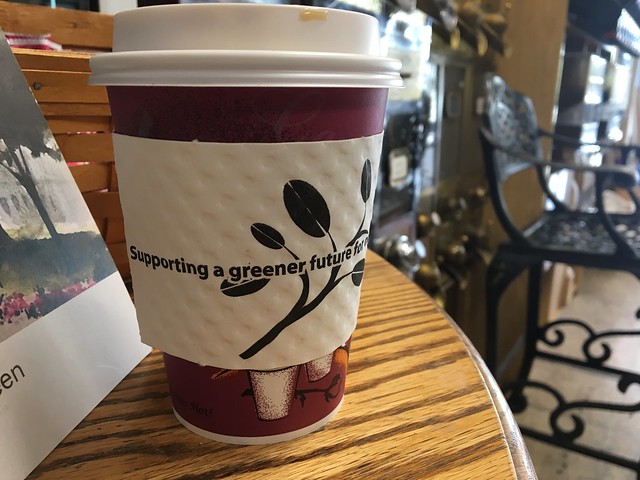
Latte with caramel.
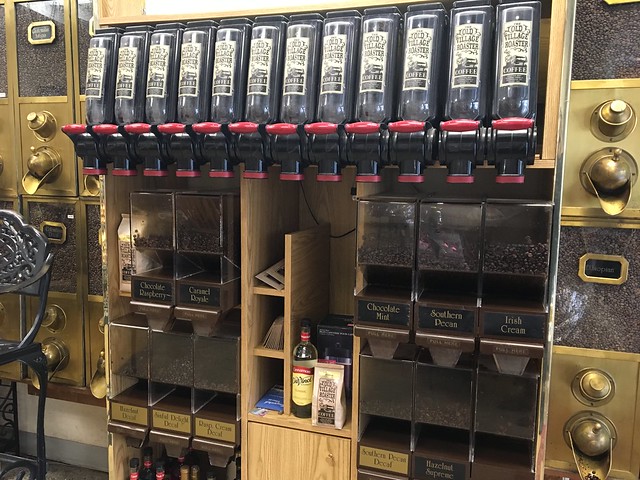

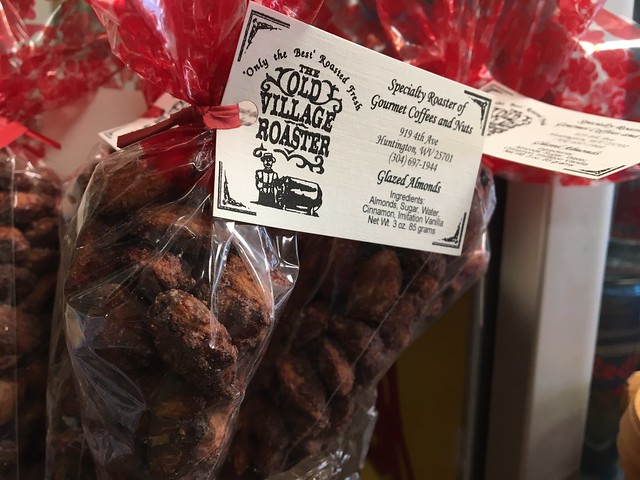
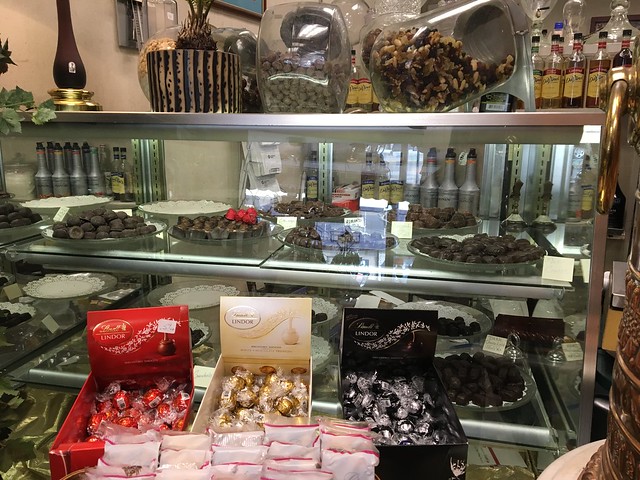
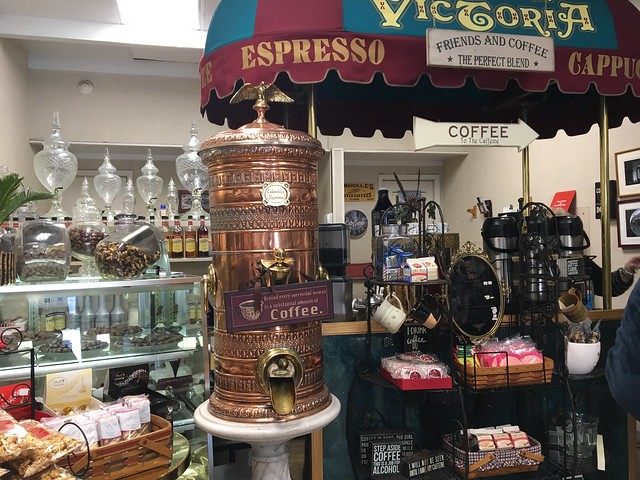
All work property of Candace Nelson. Powered by Blogger.

